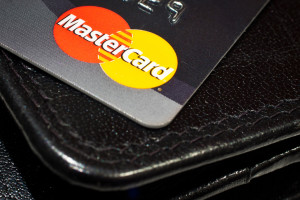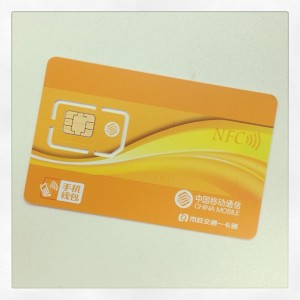May 7th, 2014 by Elma Jane

NTC’s New Approach On Payment Processing brings Client Satisfaction
About NTC (National Transaction Corporation)
NTC is a credit card processing company that was built uniquely. Combining leading edge technology with passion for customer service, as well as service to help customers maximize the value of their merchant service program. NTC provides sales agents, financial institutions and merchants with benefits not available from other providers, such as next day funding with a late cut-off time and unparallel graphical and web-based reporting.
To learn more visit http://www.nationaltransaction.com or call 888-996-2273.
Marking a 65% increase over 2012 NTC now serves approximately 15,000 businesses.
This rapid growth was driven by the many unique benefits that NTC offers its merchants and sales partners, ranging from best technology to superior customer service.
The major differentiators made possible by NTC’s proprietary back-end processing system is the Next Day Funding Service. Because NTC connects directly to the following: Amex, Discover, MasterCard and VISA. This way sales partners and merchants are able to avoid the middleman and go straight to the source of all their processing needs. This also means that the merchants can batch out their terminal POS with one of the latest cut-off times in the industry by as late as 11:00 pm Eastern.
NTC’s another appealing factor to new sales partners and merchants is its merchant connect online reporting system. It provides 24/7 access to graphical account information through a system that is fast easy and secure. Merchants are now able to clearly see and understand their payment processing costs. ISO’s have access to sugar CRM to make notes and see Merchant Marketing Data. Card Numbers are secure on the banks server so our faculty has credentials to access the bank servers.
Independent sales organizations (ISOs) and Merchant sales professionals continue to choose NTC as their payment processing partner to obtain these unique benefits. In addition to industry-leading technology, NTC offers its merchants and sales partners a level of personalized support that is not easily found among other credit card processing companies. They get round the clock account and terminal support. Collective hard work and determination helped NTC grow faster in the industry, resulted in more loyal ISO sales partners who are submitting more applications. Looking forward for continued success for NTC, its sales partners and merchants.
Posted in Credit card Processing, EMV EuroPay MasterCard Visa, Financial Services, Merchant Account Services News Articles, nationaltransaction.com, Point of Sale, Visa MasterCard American Express Tagged with: amex, back-end processing, bank, bank servers, card, card numbers, credit card processing, credit-card, customer service, Discover, financial institutions, marketing data, MasterCard, merchant, merchant connect, merchant service, next day funding, payment processing, POS, provider's, sales agents, sales partners, sugar CRM, terminal, visa, web-based
March 31st, 2014 by Elma Jane
A payment processor is a company often a third party appointed by a merchant to handle credit card transactions for merchant acquiring banks. They are usually broken down into two types: Back and Front-End.
Back-End Processors accept settlements from Front-End Processors and, via The Federal Reserve Bank, move the money from the issuing bank to the merchant bank.
Front-End Processors have connections to various card associations and supply authorization and settlement services to the merchant banks’ merchants. In an operation that will usually take a few seconds, the payment processor will both check the details received by forwarding them to the respective card’s issuing bank or card association for verification, and also carry out a series of anti-fraud measures against the transaction.
Additional parameters, including the card’s country of issue and its previous payment history, are also used to gauge the probability of the transaction being approved.
Once the payment processor has received confirmation that the credit card details have been verified, the information will be relayed back via the payment gateway to the merchant, who will then complete the payment transaction. If verification is denied by the card association, the payment processor will relay the information to the merchant, who will then decline the transaction.
Modern Payment Processing
Due to the many regulatory requirements levied on businesses, the modern payment processor is usually partnered with merchants through a concept known as software-as-a-service (SaaS). SaaS payment processors offer a single, regulatory-compliant electronic portal that enables a merchant to scan checks “often called remote deposit capture or RDC”, process single and recurring credit card payments (without the merchant storing the card data at the merchant site), process single and recurring ACH and cash transactions, process remittances and Web payments. These cloud-based features occur regardless of origination through the payment processor’s integrated receivables management platform. This results in cost reductions, accelerated time-to-market, and improved transaction processing quality.
Payment Processing Network Architecture
Typical network architecture for modern online payment systems is a chain of service providers, each providing unique value to the payment transaction, and each adding cost to the transaction. Merchant>Point-of-sale SaaS> Aggregator >Credit Card Network> Bank. The merchant can be a brick-and-mortar outlet or an online outlet. The Point-of-sale (POS) SaaS provider is usually a smaller company that provides customer support to the merchant and is the receiver of the merchant’s transactions. The POS provider represents the Aggregator to merchants. The POS provider transaction volumes are small compared to the Aggregator transaction volumes. The POS provider does not handle enough traffic to warrant a direct connection to the major credit card networks. The merchant also does not handle enough traffic to warrant a direct connection to the Aggregator. In this way, scope and responsibilities are divided among the various business partners to easily manage the technical issues that arise.
Transaction Processing Quality
Electronic payments are highly susceptible to fraud and abuse. Liability to merchants for misuse of credit card data creates a huge expense on merchants, if the business were to attempt mitigation on their own. One way to lower this cost and liability exposure is to segment the transaction of the sale from the payment of the amount due. Some merchants have a requirement to collect money from a customer every month. SaaS Payment Processors relieve the responsibility of the management of recurring payments from the merchant and maintain safe and secure the payment information, passing back to the merchant a payment token. Merchants use this token to actually process a charge which makes the merchant system fully PCI-compliant. Some payment processors also specialize in high-risk processing for industries that are subject to frequent chargebacks, such as adult video distribution.
Posted in Best Practices for Merchants, Credit card Processing, Electronic Check Services, Electronic Payments, Internet Payment Gateway, Merchant Services Account, Payment Card Industry PCI Security, Point of Sale, Visa MasterCard American Express Tagged with: aggregator, aggregator transaction volumes, back end, card associations, card data, chargebacks, credit card transactions, electronic portal, front end, front-end processors, issuing bank, merchant, merchant bank, network architecture, online payment systems, payment gateway, payment processing, payment processor, payment transaction, pci-compliant, point of sale, POS, SAAS
March 3rd, 2014 by Elma Jane
Interchange is a word that’s talked about a lot in the payments industry. If you didn’t have to pay interchange fees, what would your business spend the money on? At its most basic, interchange is the fees businesses pay to credit card processors to swipe your credit and get paid – or the cost of moving money. Businesses are sick and tired of paying high fees and getting very little in return. Customers are sick and tired of seeing prices of items tick upwards as businesses are forced to charge more to cover the cost of interchange.
Businesses spend an exorbitant amount of money each year to accept credit cards – to the tune of $50B. Businesses could reinvest the money they’ve been spending on interchange to better connect with customers, enhance marketing initiatives and grow faster and smarter. Just imagine for a second the economic stimulus the country would get if all that money was put back into the business to drive growth, or back into the pockets of customers to lower costs.
In the past 30 years, interchange fees have mainly gone in only one direction: up. Luckily, things are starting to change, and I think we’re going to start seeing interchange being driven down. The days of a 3 -or 4-percent interchange rate are beginning to look numbered and here’s why:
Competition
There are nearly 200 players in the mobile payments space, with more entering daily. New opportunities are providing businesses with alternative payment options that are outside of Mastercard and Visa’s clutches. While there might be 1,000-plus credit card processing companies, they’re all based on the Mastercard/Visa rails, which provides a fixed floor. But not so with many of these new payment options. As such, traditional methods of payment (cash, credit cards) are facing an increasing amount of competition, and merchants are starting to pay attention.
It’s unlikely that cash and credit cards are going away anytime soon, but it only takes a small shift in volume (maybe 5 percent) for the card issuers to start paying attention. There are a number of ways for them to react, but if history is any guide, one of them will be to start lowering their prices. Alternatively, they could find ways to offer more value to their merchants. Either way, competition is offering merchants new ways to accept payments, and this will lower fees over time.
Innovation
The second thing driving down costs for merchants is rapid innovation, and like a good deal of innovation these days, much of it is centered around mobile. Mobile payments are starting to gain significant traction among consumers, accounting for $640M in 2012 and expected to have grown by an additional 234 percent in 2013.
QR codes, NFC, peer-to-peer payments, card emulation – the list of new technologies trying to disrupt the payments space goes on and on. These new alternatives are challenging the current payments system and shedding light on the opportunities for businesses. This innovation is beneficial in two ways. The first, as discussed above is that more competition will naturally drive costs down. The second is that alternative payment options are focusing on value beyond the transaction.
There are new payment options out there that provide tangible information, such as data analytics, which help companies drive sales and increase revenues. New options are allowing small businesses access to the same technology and analytics that were previously reserved for big-box retailers or e-commerce sites only. These additional value propositions not only help businesses, they also provide new ways for payments companies to monetize, removing the need for them to make all of their money from interchange. With two (or more) revenue lines, lowering interchange is suddenly a lot more feasible.
Legislation
The Durbin Amendment is designed to introduce competition in the debit card processing network and limit fees for businesses. For all of its unintended consequences, Durbin legislation is actually helping to drive down interchange; it’s opening up competition for non-card-brand network players and lowering debit card fees. While it is certainly rife with controversy, this amendment is opening up new ways to move money that will, over time, contribute to a less expensive payment processing ecosystem.
Merchant demand
Business owners are smart and savvy. They pay attention to trends, focusing on finding new ways to set their business apart. Business owners are also conscious of ROI, and how much they’re spending to attract and retain customers. They understand there is some cost to accept payments, but are becoming more and more frustrated at the high swipe fee costs from traditional credit card processors and minimal return for those fees.
Businesses are looking to new, innovative solutions to provide more than just payment processing – they want to understand and better connect with their customers. In short, merchants are ready for a new payments ecosystem, and where there’s this much demand from a group this big and influential, a solution can’t stay away for too long.
Interchange rates are not going away entirely in the near future, although it will happen eventually. A lot of powerful wheels are in motion to significantly reduce the interchange rates that merchants currently pay. Right now the impact might be small, but it’s growing quickly. In a few years, 3- to 4-percent interchange could be relegated to the same bit of history as $1.99 international phone calls.
Posted in Credit card Processing, Electronic Payments, Financial Services, Gift & Loyalty Card Processing, Internet Payment Gateway, Small Business Improvement Tagged with: accept credit cards, accept payments, alternative payment, credit card processing, credit card processors, credit cards, debit card processing network, e-commerce, interchange, interchange fees, interchange rates, lowering debit card fees, lowering interchange, Merchant's, Mobile Payments, payment processing, payments, payments industry, swipe your credit card
February 18th, 2014 by Elma Jane
Payment Tokenization Standards
Tokenization is the process of replacing a traditional card account number with a unique payment token that is restricted in how it can be used with a specific device, merchant, transaction type or channel. When using tokenization, merchants and digital wallet operators do not need to store card account numbers; instead they are able to store payment tokens that can only be used for their designated purpose. The tokenization process happens in the background in a manner that is expected to be invisible to the consumer.
EMVCo – which is collectively owned by American Express, Discover, JCB, MasterCard, UnionPay and Visa – has announced that it is expanding its scope to lead the payments industry’s work to standardize payment tokenization. EMVCo says that the new specification will help provide the payments community with a consistent, secure and interoperable environment to make digital payments when using a mobile handset, tablet, personal computer or other smart device.
Key elements of EMVCo’s work include adding new data fields to provide richer industry information about the transaction, which will improve transaction efficiency and enhance the consumer and merchant payment experience by helping to prevent fraudulent card account use. EMVCo will also create a consistent approach to identify and verify the valid use of a token during payment processing including authorization, capture, clearing and settlement.
EMVCo’s announcement follows an earlier joint announcement from MasterCard, Visa and American Express that proposed an initial framework for industry collaboration to standardize payment tokenization. EMVCo says it will now build on this framework with collective input from all of its members and the industry as a whole.
Posted in Credit card Processing, Credit Card Reader Terminal, Credit Card Security, Digital Wallet Privacy, Electronic Payments, Financial Services, Payment Card Industry PCI Security, Visa MasterCard American Express Tagged with: American Express, authorization, capture, card account numbers, clearing, data fields, device, digital payments, Digital Wallet, Discover, EMV, emvco, fraudulent card account, interoperable, jcb, MasterCard, merchant, mobile handset, payment, payment processing, payment token, secure, security standards, settlement, smart device, specification, standardize, tablet, token, tokenization, transaction, visa
November 22nd, 2013 by Admin
As we move to smartphones and tablets as payment methods security and privacy concerns are a real issue. With recent NSA leaks shedding light on our data and the access others have to it, we have to consider security, privacy and health implications. This year alone e-commerce transactions on smartphones and tablets during the holiday season are set to grow by 15%. Although tablets, not smartphones will drive the bulk of that growth, smartphones are set to overtake mobile-commerce payments over the next 5 years. Tablet payments in the U.S. alone are expecting to reach $26 billion in transactions. Currently tablets are more convenient for m-commerce due to their size, but as far as the future of electronic payment processing, smartphones are where it’s at.
The smart merchant sees this coming and realizes frictionless transactions increase sales. The more comfortable and less complicated a transaction is for a customer, the better. Smartphones, tablets, PCs, laptops and more can already process electronic transactions from credit and debit cards, gift cards, electronic checks and more. Money movement is easier than ever and more convenient than cash. Cash is king however in situations where internet connectivity and power are an issue. In India for example, a poor electric grid makes power outages a common occurrence. During natural disasters, when resources are badly needed, power outages or severed internet communications mean no electronic transactions can be processed. So physical currency remains a must, in the future we may see payment technology evolve to where digital money like crypto currency (BitCoin) may be stored on the device itself similar to having cash. As these electronic payment systems evolve, merchants need to position themselves to accept what their market prefers to transact with.
The smart citizen also sees this coming and has concerns that things like a National ID program being established may compromise their privacy.
As an extreme example of electronic transactions, a nightclub in Spain used subdermally implanted RFID chips in a woman that allowed patrons to pay for food and beverages without a credit card.
Posted in e-commerce & m-commerce, Electronic Check Services, Electronic Payments, Gift & Loyalty Card Processing, Merchant Services Account, Near Field Communication, Smartphone Tagged with: bitcoin, cash, connectivity, credit, crypto currency, currency, debit cards, digital money, e-commerce, electronic, electronic checks, frictionless, Gift Cards, health, internet, laptops, leaks, m-commerce, Merchant's, mobile-commerce payments, money, national id, nsa, pay, payment methods, payment processing, PCs, privacy, processed, RFID, Security, smartphone, tablets, technology, transact, transactions
October 10th, 2013 by Elma Jane
Amazon has launched a service that enables its customers to pay on other e-commerce sites via their Amazon account data. Called ‘Login and Pay with Amazon,’ the service sells payment processing for participating retailers.
Amazon has more than 215 million active customer accounts. The Amazon payment service works on personal computers, smartphones and tablets. Site developers employ Amazon widgets and APIs, or application programming interfaces.
Login and Pay with Amazon enables companies to make millions of customers by inviting online shoppers with Amazon credentials to access their account information safely and securely with a single login. Login and Pay with Amazon helps replace guest checkouts with recognized customers, leading to improved services which could include: managing and tracking orders, purchase history detail, special discounts, instant access to shipping addresses and payment methods.
Amazon previously called its payment service Checkout by Amazon, but rebranded it Amazon Payments. In May, Internet Retailer wrote about Autoplicity.com’s experiences adding the Amazon payment tool.
Amazon says it will not share customers’ credit card information gained via the payment tool, and that it will cover purchases made through the service in the same way purchases are covered from Amazon.com.
“This [newly launched] service is more of a repackaging of Checkout by Amazon than as something new,” says a payments industry analyst. “Amazon has been a challenger to PayPal for some time in the Internet payments arena, but PayPal has the dominant market share. One key reason is that PayPal is not viewed as a direct competitor to the merchants it serves while Amazon often is.”
PayPal, part of eBay, is the clear leader in so-called alternative payments, used by 84% of consumers who pay online with alternatives to payment cards, according to a report earlier this year from Javelin Strategy & Research. The report, based on a 2012 survey, also showed that 42% of consumers pay with credit cards when making online retail and travel purchases, up from 40% in the 2011 survey, and 29% pay with debit cards, down from 30%.
The new Amazon service is a “great deal” more than a warmed-over Checkout.
He points out that the number of Amazon’s active accounts is much more than the active users of all eBay’s payment services. Including consumers with PayPal or Bill Me Later accounts, that base totaled 132.4 million in the second quarter, up nearly 17% from 113.2 million a year earlier, according to eBay. And Amazon’s customers trust the security of making payments through the e-retailer, and have grown accustomed to the convenience of doing so. Amazon is No. 1 in the Internet Retailer.
For e-retailers, it’s yet another payment method they might want to evaluate. “Amazon is a damn big brand. If you bring that many users along with [the payment service], then e-retailers will give it serious consideration. It will give PayPal some competition.
Posted in e-commerce & m-commerce, Electronic Payments, Mobile Payments, Mobile Point of Sale, Smartphone Tagged with: Amazon, amazon.com, api, application programming interface, checkout, credit cards, customers, debit cards, e-commerce, e-retailer, ebay, internet retailer, online, orders, payment methods, payment processing, payment service, PayPal, purchase, shoppers, travel purchases





